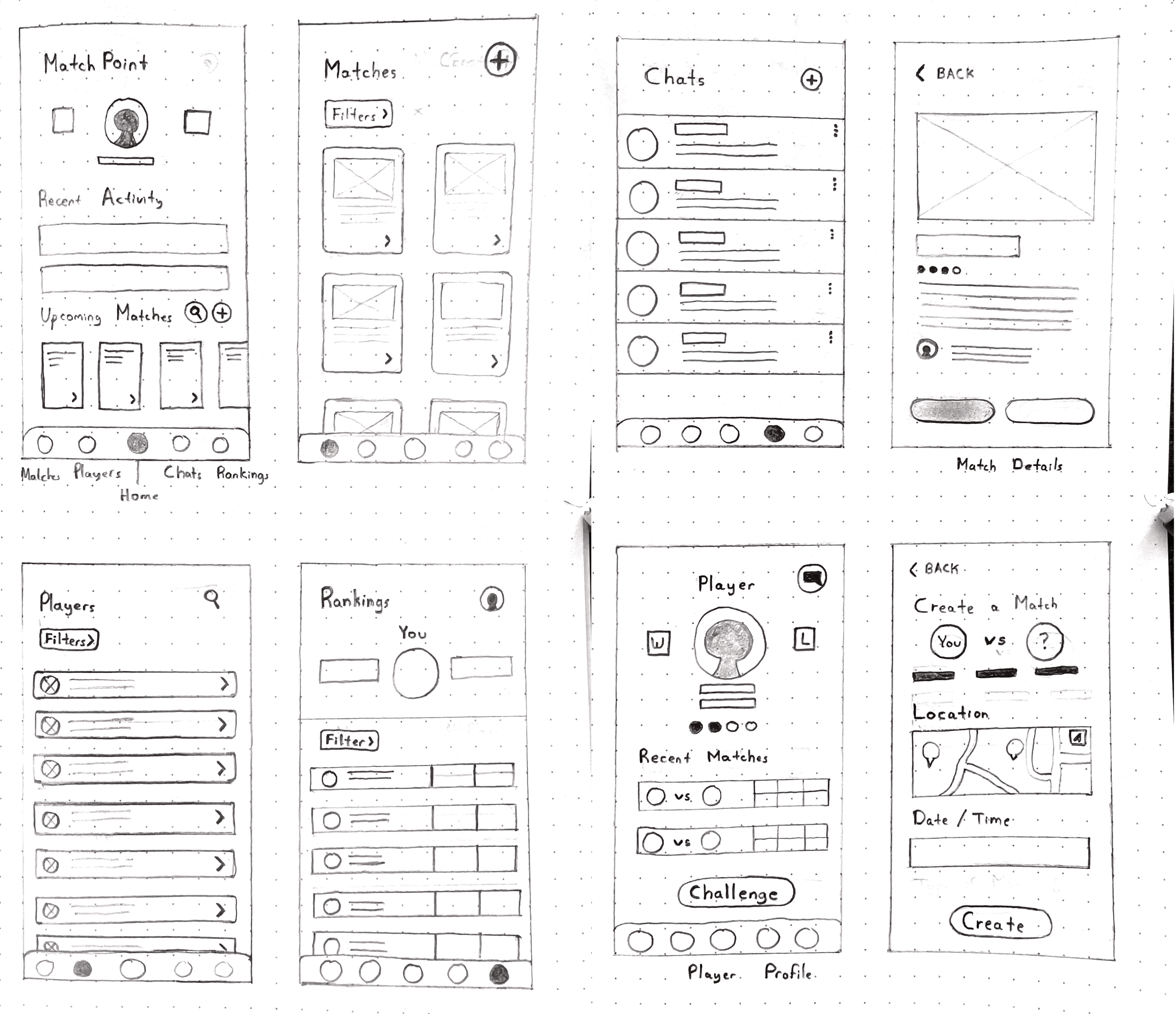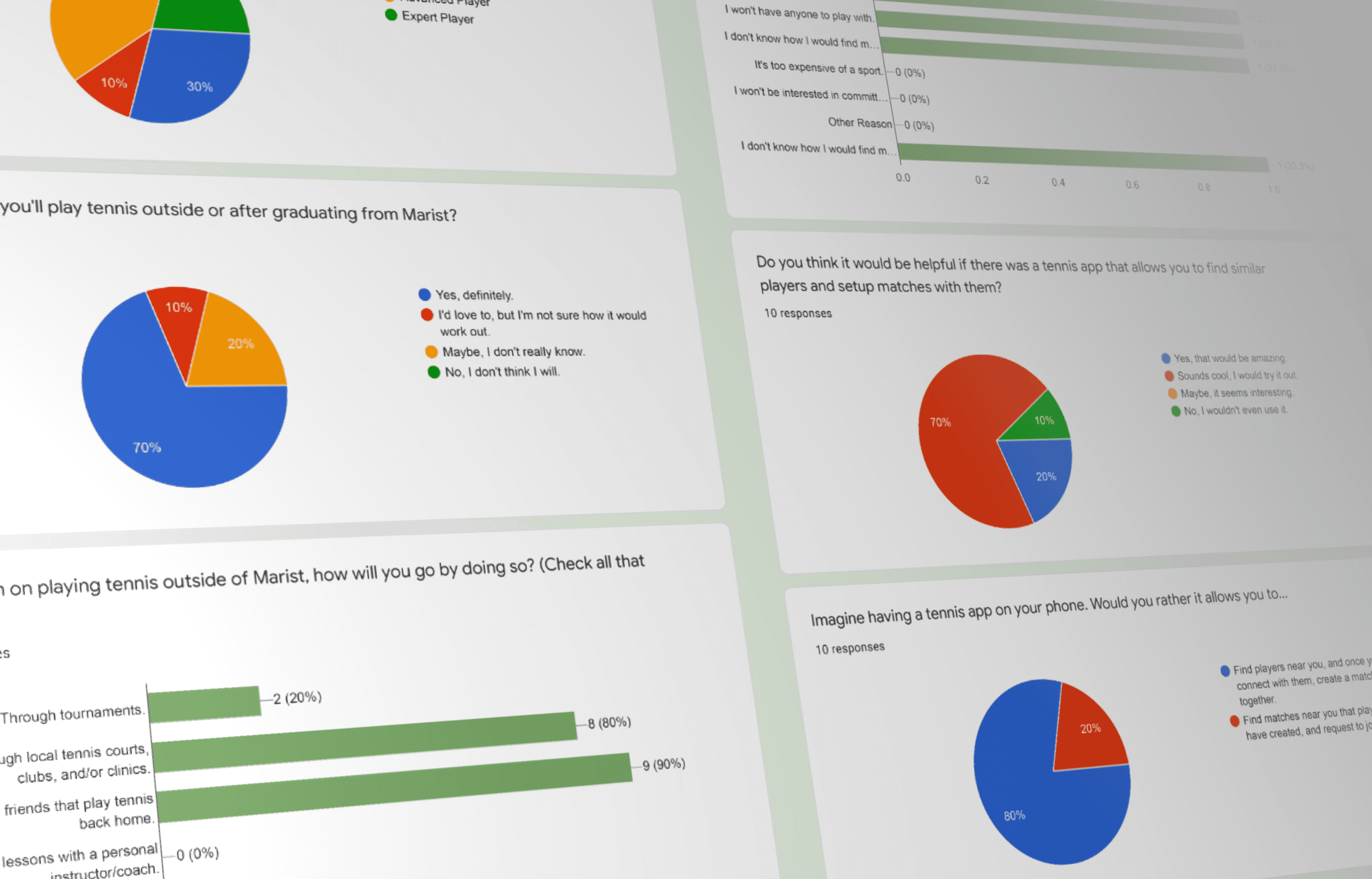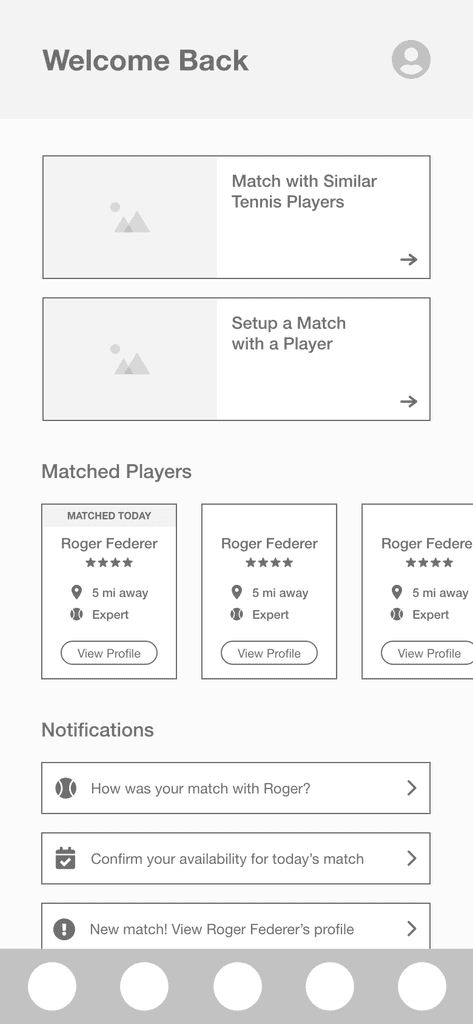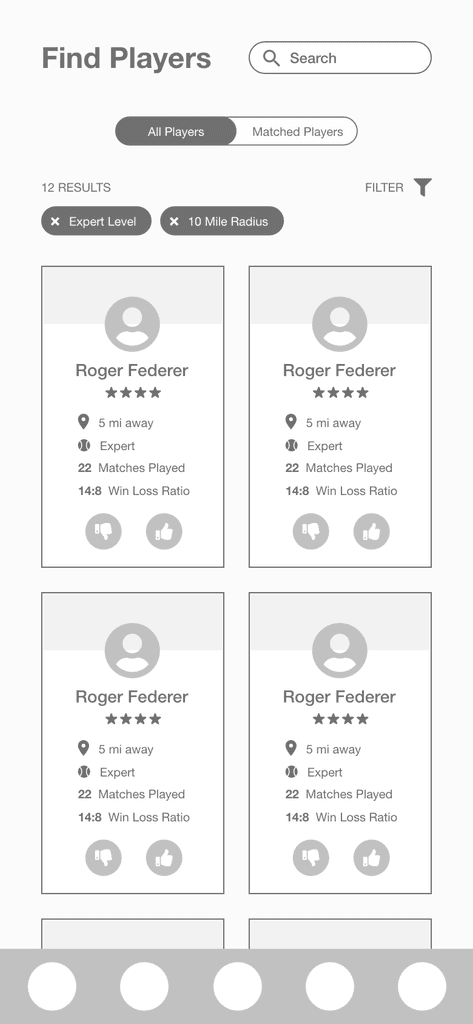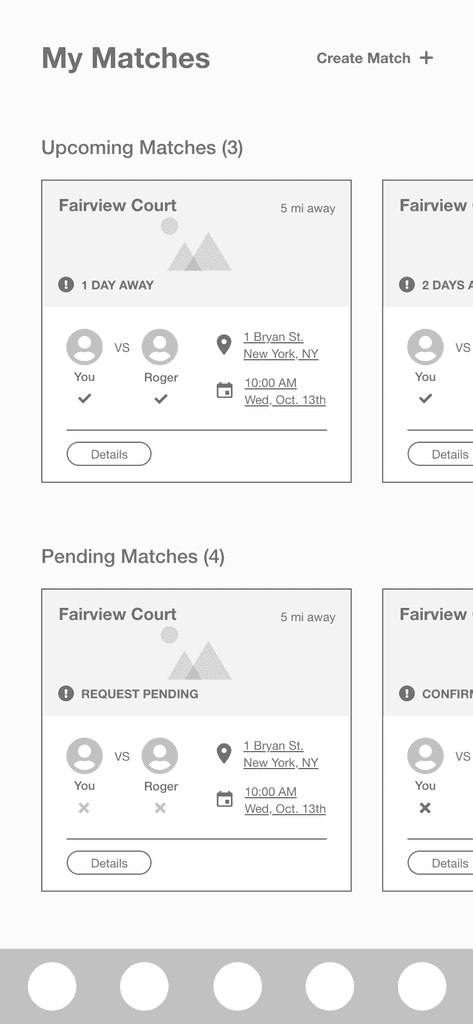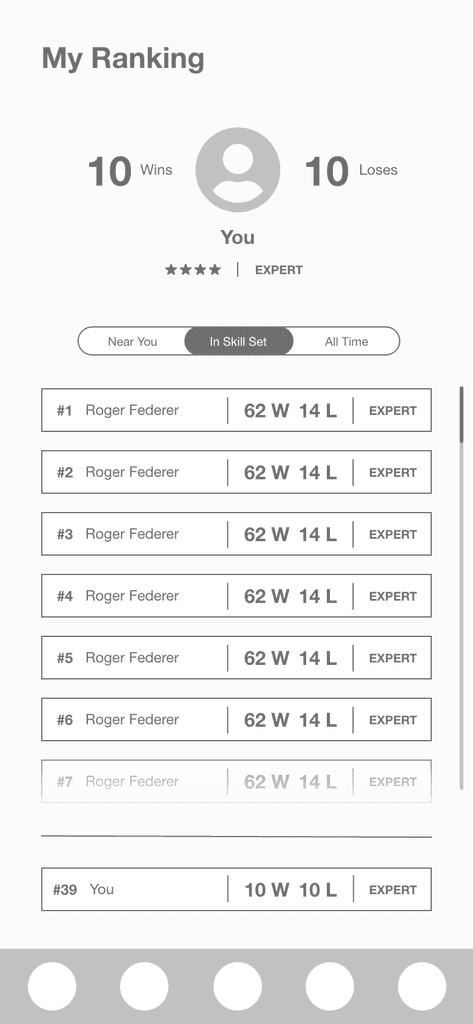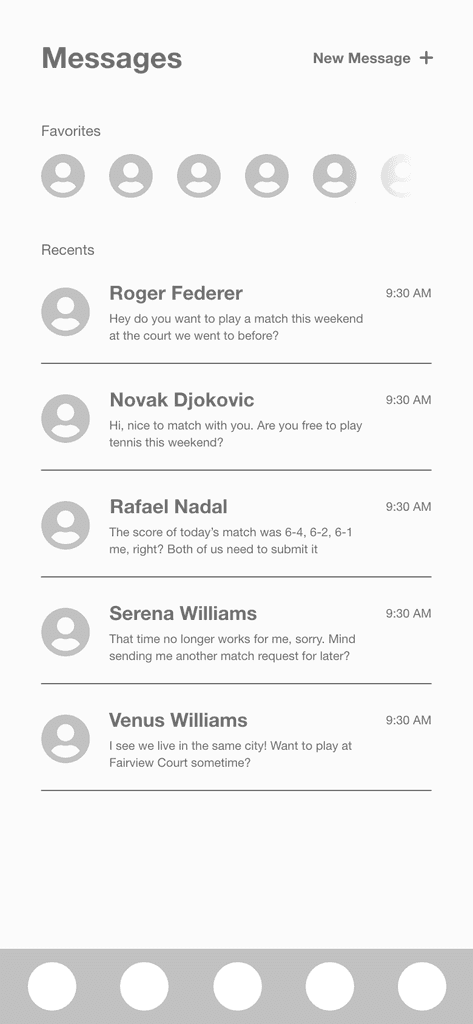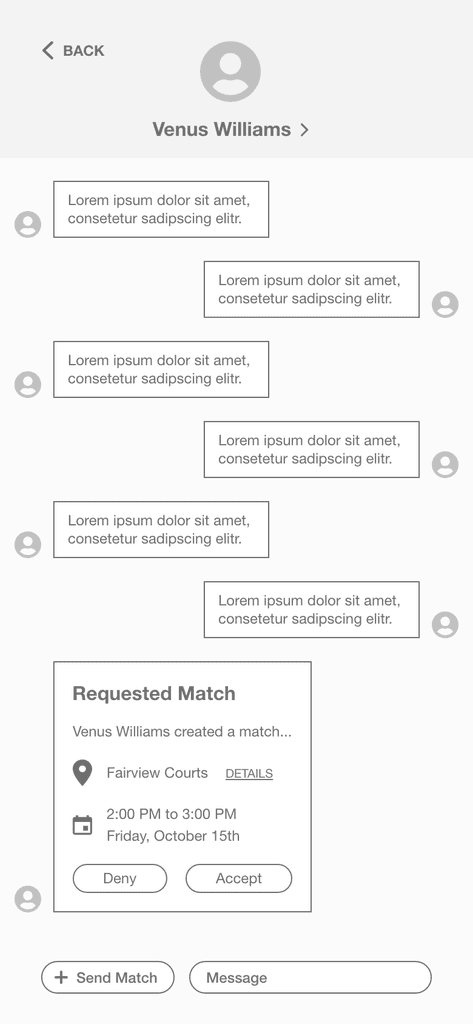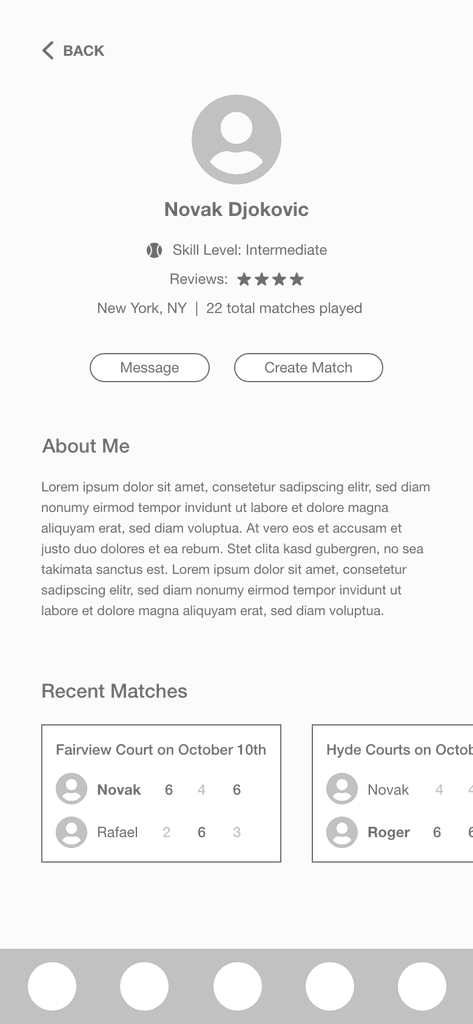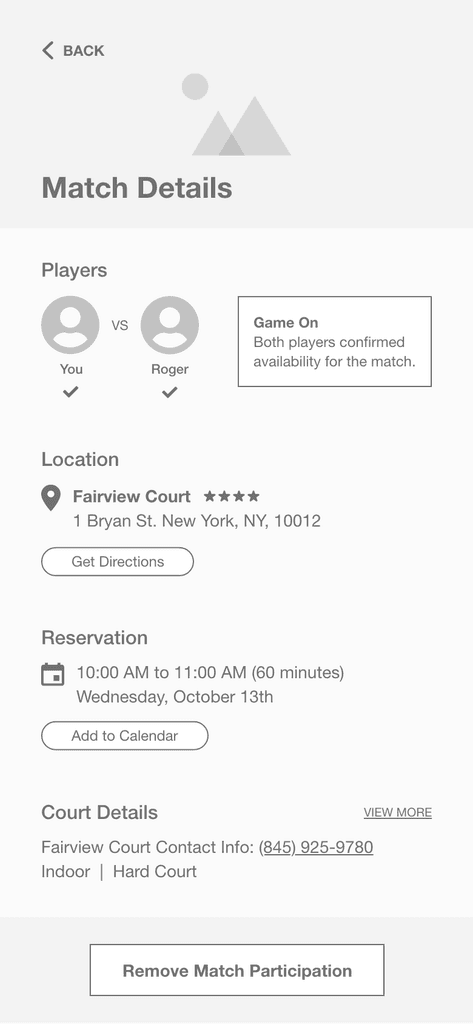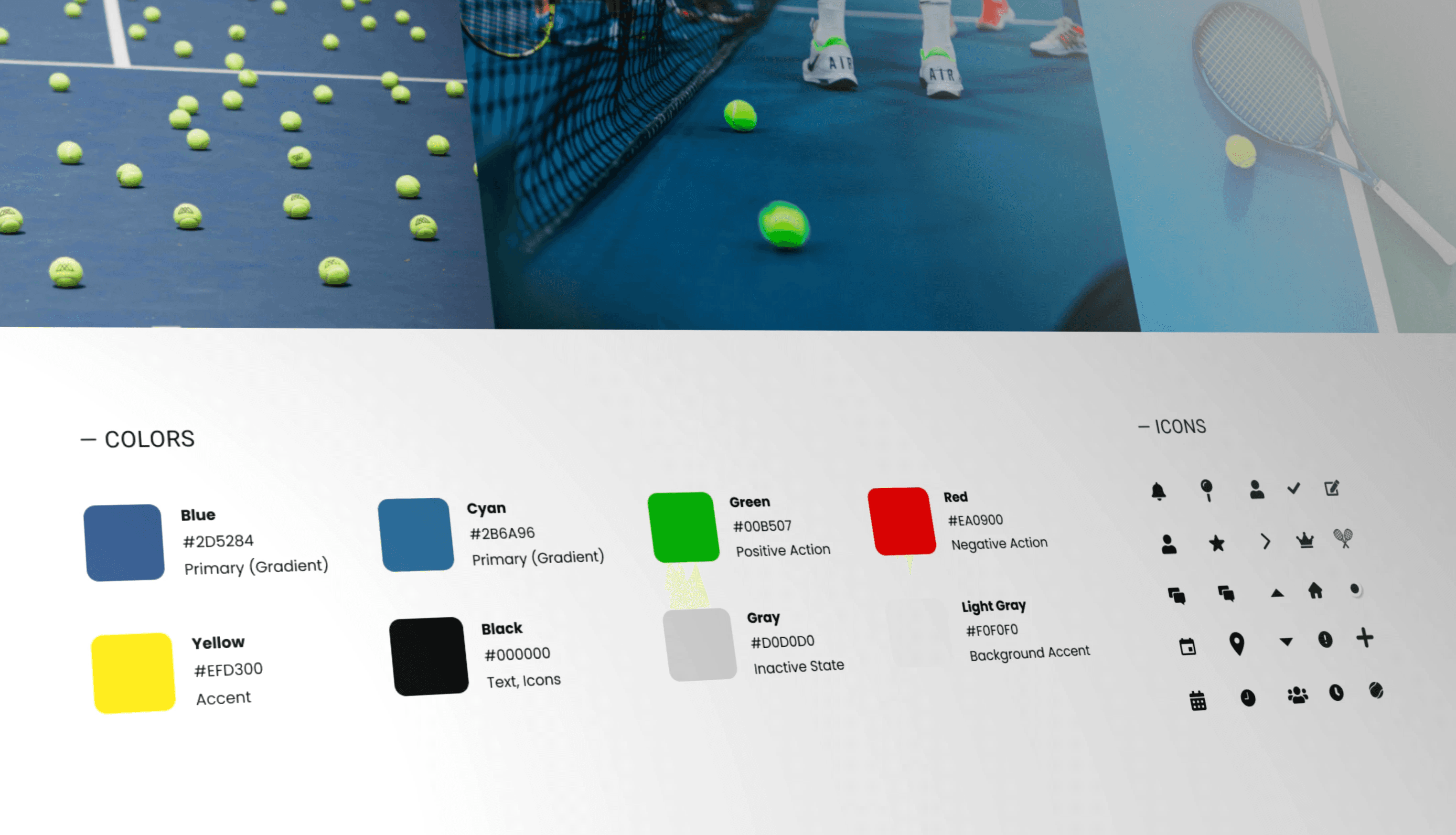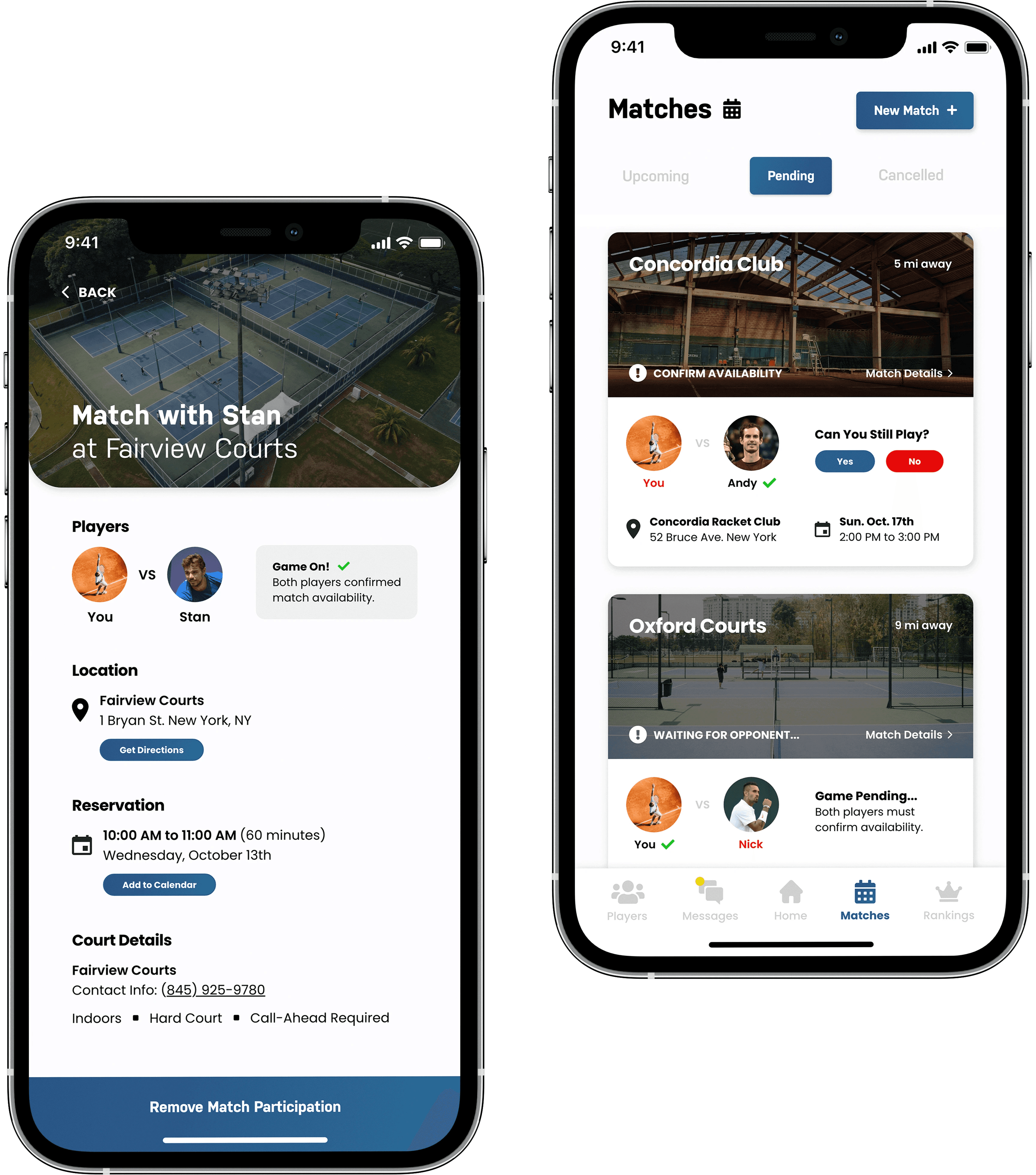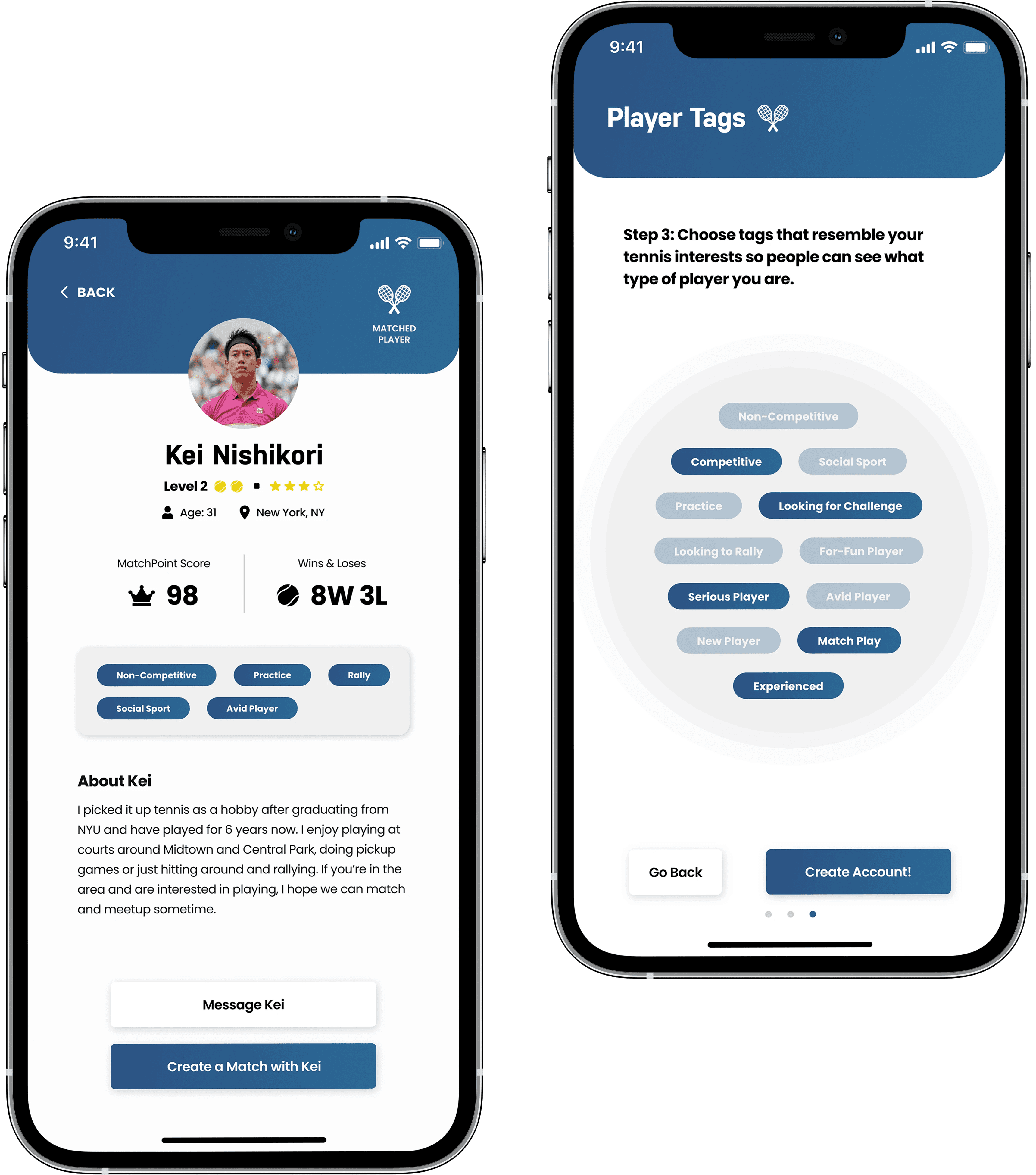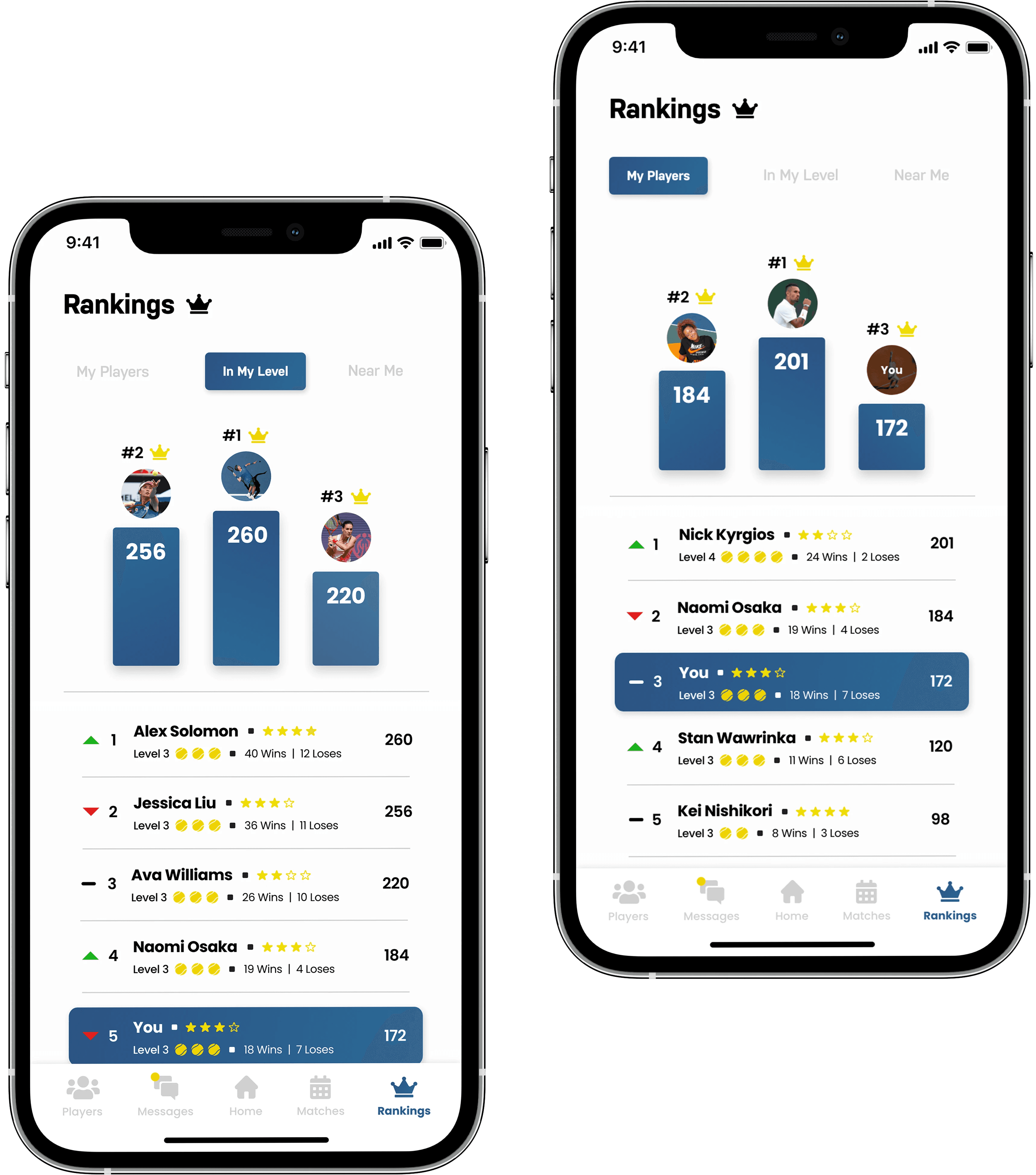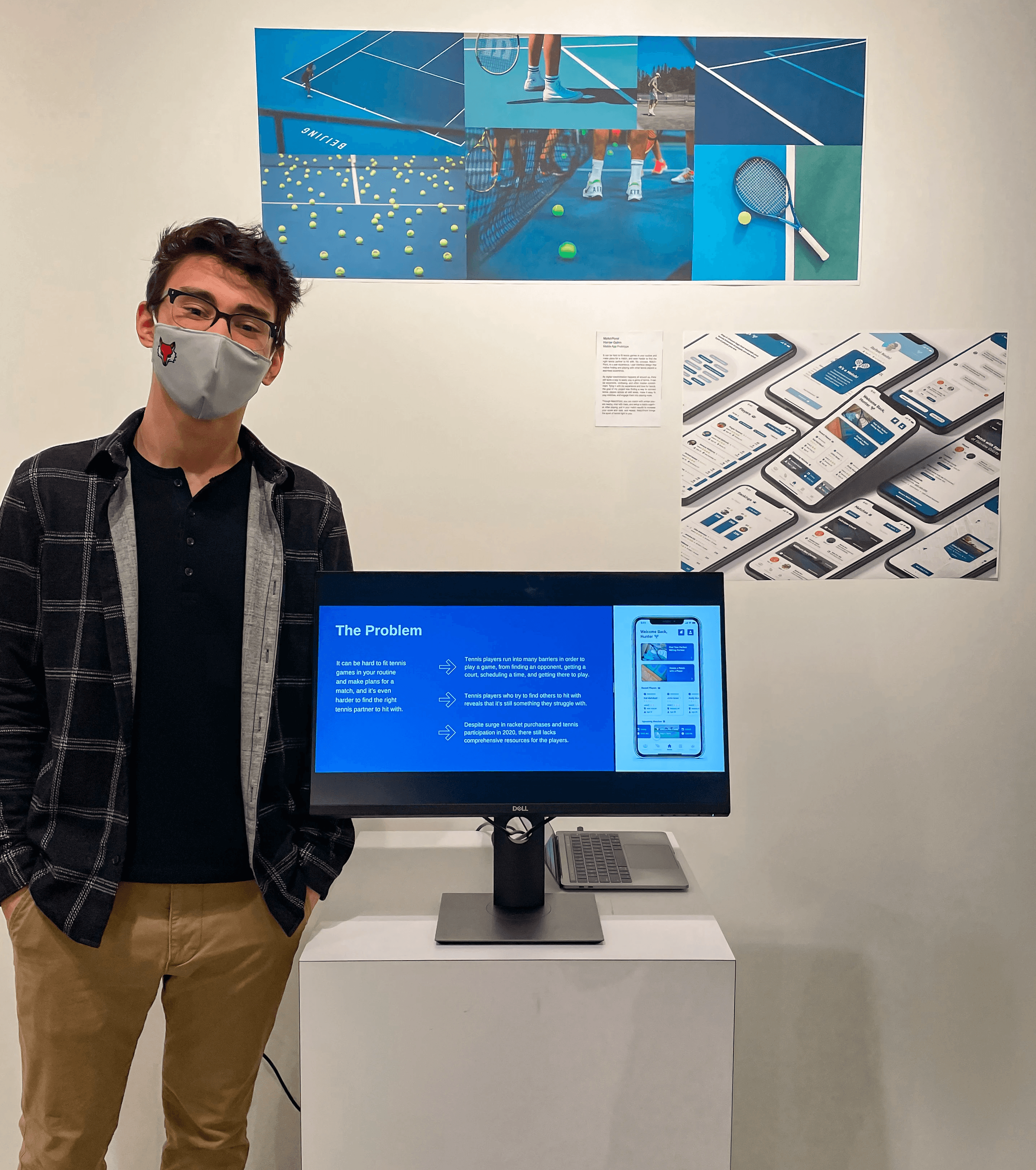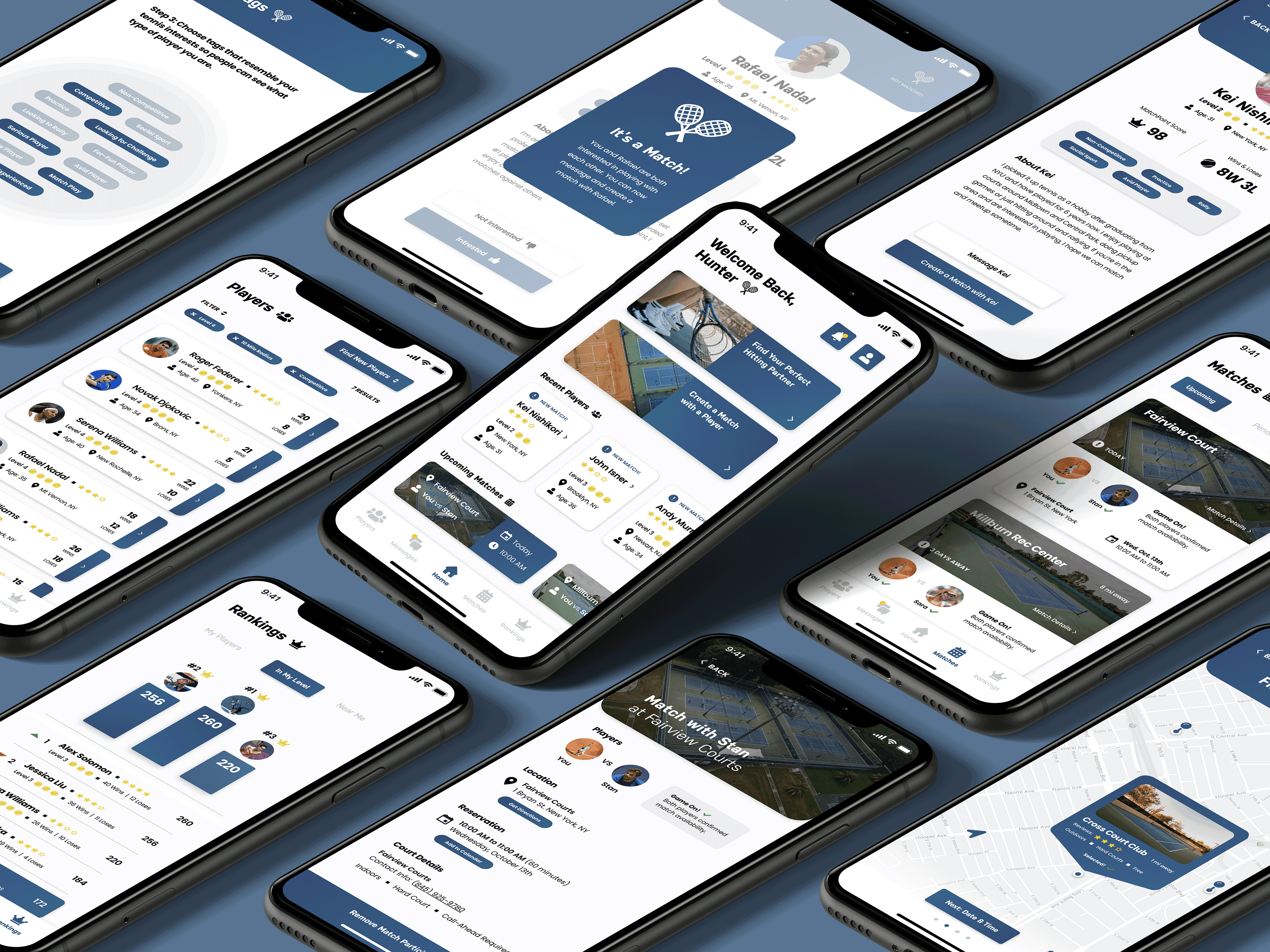Match-Making for Tennis Players
My Role
Lead Product Designer
Research, Wireframes, Testing, Visual Design
Timeline
Aug - Dec 2021, 4 months
Technology
Adobe XD
Miro
Overview
As a tennis player myself, I often found it difficult to find similar players and schedule matches. Most online services felt unreliable or complicated, making it hard to enjoy spontaneous and competitive play.
For my Senior Thesis, I designed a concept that makes it easier for players to connect and commit to matches, focusing on higher accountability and a more rewarding tennis experience.
01
The Discovery
Key Pain Points
Tennis has grown in popularity, but current methods of getting playing time such as lessons or clinics can be expensive and involve commitment. Additionally, online meetup services often fail to provide players with a successful connection experience.
I researched interfaces, features, and feedback of player-finding apps to understand the current landscape. A few themes quickly emerged:
Poor Accountability
Users reported inactive players, no-shows, and unreliable scheduling, which broke trust in the experience.
Feature Overload
Services often bundled social feeds, private lessons, and coaching services that players weren't engaging with.

Guiding Principles
This research pointed to a need for something much simpler – a platform focused strictly on helping tennis players find each other, confirm interest, and show up to play."
Streamline Discovery
Make it simple for players to browse matches and players in their area.
Encourage Commitment
Build in steps that improve accountability and help players follow through.
Keep It Light
Avoid overloading unnecessary features and prioritize what supports match play.
2
Ideation
Reimagining the Journey
I mapped out a new player experience, from browsing nearby players to post-match engagement. Each step was designed to prioritize simplicity, commitment, and flexibility.
Find Players
Users can explore profiles of nearby tennis players and send match requests.
Find Matches
Users can join nearby matches or create their own, increasing opportunities for spontaneous play.
Match Confirmation
Players are required to confirm availability before a match – unconfirmed matches are canceled.
Boost Score
Players can increase their in-app score by optionally submitting match results or simply by playing matches.
Information Architecture
I created a high-level navigation diagram to visualize these features and identify key flows.
This helped define what needed to be built and how users would move through the system.
3
Testing & Validation
Surveying Players
I wanted to get feedback on my concept so far, but post-COVID challenges made in-person connection difficult. Instead, I conducted a survey of 20 tennis players, from professionals to casual players on campus.
I asked players about their current methods of play and whether a player-finding app would be helpful. One insight stood out:
Key Discovery
Replacing Matches with Mutual Interest
This feedback led to a major design shift.
I removed the 'Find Matches' feature and replaced it with a swipe-style interaction, where users can express interest on a player's profile. Users can view interested players, and once matched, they can chat to schedule a game.
The original journey required too much friction and the new flow was quicker, more familiar, and better aligned with user expectations.
New Proposal
Match with Players
If both players are interested in playing with each other, they're matched and can then setup a game.
4
Visual Design
Low & High-Fidelity Design
I translated the features into low-fidelity wireframes in Figma. These early designs laid the foundation for the final interface and helped visualize how each part of the experience would come together.
Reinforcing Accountability
User no-shows were a top concern from research, so I designed features that encouraged follow-through and built mutual accountability.
Player Confirmation
Both players must confirm availability before match time – matches are cancelled if players don't confirm.
Reliable by Design
This safeguard reduced no-shows and ensured mutual accountability, creating a more reliable match culture.
Profiles That Prioritize Play
I created high-fidelity mockups that focused on clarity and action.
To keep players focused on what matters, I designed profiles with clarity and relevance at the core.
Essential Info
Profiles highlight skill level and tennis experience, helping users quickly evaluate a potential match.
Player Tags
During profile setup, users can choose tags such as Competitive, Looking to Rally, or Beginner-Friendly.
Gamifying Engagement
To increase motivation and repeat play, I introduced light gamification that made participation more rewarding, without adding pressure.
Rankings
Players can see leaderboards of other players nearby or that they’ve played with, encouraging friendly competition.
In-App Score
Every confirmed match increases a players score, while optionally submitting results offers extra points. This allows players to engage in their own style.
5
The Results
Final Showcase
I presented this project at my Senior Thesis Exhibition, walking through the research, user feedback, and high-fidelity prototype.
By understanding real player frustrations and focusing on simplicity and commitment, I created a concept that reimagines how tennis players connect.
Personal Takeaways
This project demonstrated how simple, intentional design choices can build trust and drive real-world behavior
By understanding real player frustrations and focusing on simplicity and clarity, I was able to transform an idea into something that reimagined how tennis players connect.
0


